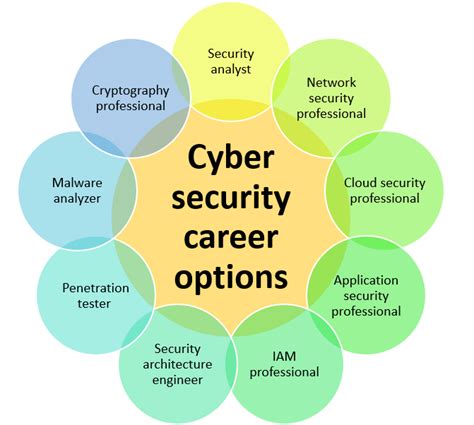IT Security Careers: Protecting Digital Futures

Introduction to IT Security Careers

In today’s digital age, technology plays a vital role in shaping the world we live in. With the increasing reliance on technology, the need for IT security professionals has never been more pressing. As technology advances, so do the threats to our digital futures. This is where IT security careers come into play, offering a rewarding and challenging profession for those passionate about protecting the digital world.
What is IT Security?

IT security, also known as information security, refers to the practices and techniques used to protect digital information and systems from unauthorized access, use, disclosure, disruption, modification, or destruction. This includes protecting computer systems, networks, and data from various types of cyber threats, such as hacking, malware, and phishing attacks.
Types of IT Security Careers

There are numerous IT security careers available, each with its unique set of responsibilities and requirements. Some of the most in-demand IT security careers include:
- Chief Information Security Officer (CISO): responsible for overseeing and implementing an organization’s overall IT security strategy.
- Security Consultant: provides expert advice to organizations on how to improve their IT security posture.
- Penetration Tester: simulates cyber attacks on an organization’s computer systems to test their defenses.
- Incident Responder: responds to and manages IT security incidents, such as data breaches or malware outbreaks.
- Security Analyst: monitors and analyzes an organization’s IT systems for potential security threats.
Skills and Qualifications Required for IT Security Careers

To succeed in an IT security career, you’ll need to possess a combination of technical, business, and soft skills. Some of the key skills and qualifications required for IT security careers include:
- Technical skills: proficiency in operating systems, networks, and programming languages, such as Python, C++, and Java.
- Certifications: CompTIA Security+, CISSP, CEH, and CISM certifications are highly valued in the industry.
- Analytical skills: ability to analyze complex data and identify potential security threats.
- Communication skills: ability to communicate technical information to non-technical stakeholders.
- Problem-solving skills: ability to think critically and develop creative solutions to complex security problems.
How to Get Started in an IT Security Career

If you’re interested in pursuing an IT security career, here are some steps to get started:
- Gain relevant education and training: earn a degree in computer science, cybersecurity, or a related field, and consider pursuing certifications and training programs.
- Build a strong foundation in IT: develop a solid understanding of IT concepts, including operating systems, networks, and programming languages.
- Gain practical experience: participate in internships, hackathons, and capture the flag (CTF) challenges to gain hands-on experience in IT security.
- Stay up-to-date with industry developments: follow industry blogs, attend conferences, and participate in online forums to stay current with the latest IT security trends and threats.
📚 Note: IT security is a constantly evolving field, and it's essential to stay up-to-date with the latest developments and threats to remain relevant.
Challenges and Opportunities in IT Security Careers

IT security careers can be challenging, but they also offer many opportunities for growth and development. Some of the challenges faced by IT security professionals include:
- Staying ahead of emerging threats: the IT security landscape is constantly evolving, with new threats and vulnerabilities emerging daily.
- Managing complexity: IT security systems can be complex and difficult to manage, requiring strong technical skills and attention to detail.
- Communicating with stakeholders: IT security professionals must be able to communicate technical information to non-technical stakeholders, including executives and customers.
On the other hand, IT security careers offer many opportunities, including:
- Job security: the demand for IT security professionals is high, and job security is excellent.
- Variety: IT security careers offer a wide range of specializations and areas of focus, including penetration testing, incident response, and security consulting.
- Opportunities for advancement: IT security professionals can advance to leadership positions, such as CISO or security manager, or start their own security consulting firms.
Conclusion

IT security careers offer a rewarding and challenging profession for those passionate about protecting the digital world. With the increasing reliance on technology, the need for IT security professionals has never been more pressing. By gaining relevant education and training, building a strong foundation in IT, and staying up-to-date with industry developments, you can succeed in an IT security career and help protect the digital futures of organizations and individuals around the world.
What is the average salary for an IT security professional?

+
The average salary for an IT security professional varies depending on the specific job title, location, and industry. However, according to the Bureau of Labor Statistics, the median annual salary for information security analysts was $103,590 in May 2020.
What are some common IT security certifications?

+
Some common IT security certifications include CompTIA Security+, CISSP, CEH, and CISM. These certifications demonstrate a level of expertise and knowledge in IT security and can be beneficial for career advancement.
How can I get started in an IT security career?

+
To get started in an IT security career, gain relevant education and training, build a strong foundation in IT, and gain practical experience through internships, hackathons, and capture the flag (CTF) challenges.



